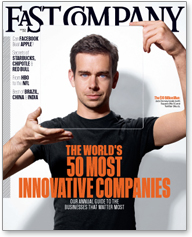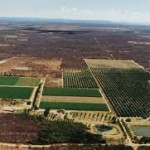 Bug Agentes Biológicos mass-produces wasps to combat larvae and stinkbugs that threaten sugarcane and soybean plants, two of Brazil’s largest cash crops. This past year, Bug perfected a way to spray its wasps onto soy fields, just as pesticides are spread via airplane. “We can liberate the insects in the right dose, at the right speed, and with the right protection so they can be effective,” says Francisco Jardim, a Brazilian VC who has invested in Bug and sits on its board. Wasps, for example, need to be protected until their wings grow big enough for flight, or else ants present a threat. (Isn’t nature grand?)
Bug Agentes Biológicos mass-produces wasps to combat larvae and stinkbugs that threaten sugarcane and soybean plants, two of Brazil’s largest cash crops. This past year, Bug perfected a way to spray its wasps onto soy fields, just as pesticides are spread via airplane. “We can liberate the insects in the right dose, at the right speed, and with the right protection so they can be effective,” says Francisco Jardim, a Brazilian VC who has invested in Bug and sits on its board. Wasps, for example, need to be protected until their wings grow big enough for flight, or else ants present a threat. (Isn’t nature grand?)
Bug’s timing feels right. Brazil is the world’s third-largest agricultural exporter (behind the United States and EU); it recently passed the U.S. as the largest consumer of pesticides. Yet the country has begun to phase out the more noxious chemical pesticides Brazilian farmers use despite diminishing effectiveness. Bug has the only alternative approved by Brazilian agricultural, health, and environmental ministries. It’s currently at 100% capacity with plans in 2012 to double the acreage it covers.

Boo-box equipe
The boo-box is the largest Internet advertising technology in Latin America. An ad network that offers innovative solutions targeting technology and different formats of advertisements for the web. In their network appears around 3 billion ads per month. Boo-box has more than 40,000 affiliate publishers that produce content every day on their blogs, websites and social network profiles. The subjects dealt with by our publishers are the most diverse, for all tastes and audiences: automotive, beauty, food, health, tourism, and more. There are 310,000 websites and blogs in total, and 23 000 profiles Twitter! All this great content attracts audience: more than 80 million people per month, equivalent to 100% of Internet users in Brazil. People interested in staying on top of all that is happening on the internet and the world. technology of boo-box bridges the gap between advertisers who want to communicate with this audience, and publishers that offer advertising space on their websites and blogs.
The Brazilian advertising network exploded last year, quintupling the number of ads it placed to reach some 80% of its home country’s web users. The key, says founder Marco Gomes, is creating novel ad formats “where people are already paying attention,” such as in Twitter feeds or blog text. Next up: targeting all of Latin America. “There’s a lot of room to grow,” says Gomes, citing a recent merger with Argentine semantics firm Popego. “The car isn’t the center of our culture anymore, it’s the computer.
3 – EBX

Eike Batista
Eike Batista’s holding – the richest Brazilian man’s businesses include mining and logistics companies, among many, many others.
For bringing fresh dirt. Brazil’s march toward self-sufficiency got an extra push from EBX this year. Grupo EBX’s Acu Superport, originally dreamed up as a “highway” to send raw goods to China, will now include a compound capable of holding 3 million tons of nitrogen-enriched fertilizer a year. Acu’s infrastructure can shuttle the resource to Brazil’s three major regions responsible for 87% of the country’s agricultural output.

Stefanini
Stefanini offers consulting services, solution development and integration, Business Process Outsourcing, application and infrastructure outsourcing, and more.
For going where the clients are. Brazil’s largest IT services company cemented its global presence by expanding further into fellow emerging economy and outsourcing powerhouse, China. Stefanini also has designs on making inroads in Japan: Its new software development center is located in Jilin , a city in China that has a large Japanese-speaking population.

Embrear
Aerospace conglomerate that produces commercial, military, and executive aircrafts.
For serving and protecting its country. New ventures into defense and security will pay off for the world’s fourth-largest aircraft manufacturer and its home country. Embraer has its eyes set on building Brazil’s first geostationary satellite, a move that will boost the country’s communication, remote imaging, and weather prediction capabilities.
5 – Petrobras

Oil rig BRazil
Petrobras has operations in the entire oil and gas productive chain and in the production of biofuels and of other alternative energy sources.
Petrobras recently made the biggest oil discoveries in Brazil in the pre-salt layer located between the states of Santa Catarina and Espírito Santo, where major volumes of light oil were found.
The first results indicate very large volumes. Just to have an idea, the Tupi accumulation alone, located in the Santos Basin, has recoverable volumes estimated at 5 to 8 billion barrels of oil equivalent (oil plus gas). Meanwhile, the Guará well, also in the Santos Basin, holds 1.1 to 2 billion barrels of light oil and natural gas.
For shoring up innovation in the Gulf of Mexico, post-Deepwater Horizon. This year, Petrobras received long-awaited U.S. Interior regulatory approval for the first floating deepwater oil and natural gas production and storage facility in the Gulf, positioning it to lead other energy companies toward what’s being billed as a safe new way to tap into natural resources. Located 165 miles off the Louisiana coastline, Petrobras’ Chinook-Cascade facility’s mobility makes it stand out from typical fixed platform sites; it can be unhooked and moved out of the path of hurricanes to avoid long-term oil shortages. The project has 600,000 barrels of oil storage capacity and can process 80,000 barrels per day.
6 – Predicta
Behavioral marketing targeting firm
For opening the app marketplace to web developers. São Paulo-based Predicta launched SiteApps in April 2011 as a platform for easy-to-use website optimization. Developers can post their free or paid apps on the site; users can then install the tool (from analytics to social media widgets) onto their websites.
Network of fashion bloggers
For blogging Brazil’s fashionable ascent. A rising middle class has brought luxury to Brazilian storefronts but not laptops. Alice Ferraz’s blog collective–featuring 26 style mavens’ takes on fashion–attracts more than 3.5 million uniques a month, besting traditional style bible Marie Claire Brazil.
The leading internet geolocation company in the country
For defining the way Brazil does local. Apontador has long moved away from its mapping roots to become the top geolocation service company in Brazil. In 2011 it rolled out Apontador+, a feature that lets businesses create pages on the site to see how Apontador users (more than 12 million a month) interact with their brand.
Online games
For bringing radio to gaming. Fresh from a copyright infringement settlement with Zynga, Vostu soldiers on as the first company to incorporate radio into its social gaming. Users can now hear Brazilian pop hits and gaming advice instead of canned music and sound effects while building farms and cities on its popular games MiniFazenda and MegaCity. Listeners can also earn rewards by completing in-game missions promoted on the station.
RIO DE JANEIRO (AP) — When Frenchman Gwenel Lecourieux was gearing up to move to Brazil, the country with its swelling upper class and world-renowned hunger for luxury goods seemed like the perfect place to set up his…















